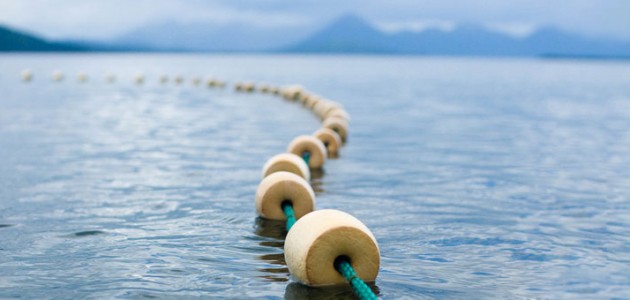Eligibility
Eligible scholars will be natural or social science researchers, who have received their PhD prior to the start of the fellowship. Applicants should propose to be based at a Canadian conservation or academic institution and conduct their research primarily in Canada. However, Canadian citizenship is not required – researchers from any country are eligible to apply. Applicants will identify a mentorship team of at least one academic and at least one conservation practitioner mentor. Applicants are encouraged to identify the mentor team early in their proposal to foster a meaningful collaboration.
We encourage applications from members of groups that have historically been marginalized, based on their sex, sexual orientation, gender identity or gender expression, racialization, disability, and/or status as First Nations, Métis, Inuit or Indigenous.
Support
The fellowship will consist of 2 years of support (the second year contingent upon satisfactory progress) with a $90,000/yr stipend and a $15,000 annual travel and research budget.
Note: Funding is held at host institutions (typically that of the primary mentor), but it is to be directed by the fellow. The funding award is provided as support of the fellow, their research needs and can be refocused at any point during the fellowship with the Liber Ero Director’s support. The Liber Ero Fellowship Program does not consider itself to be the employer of the postdoctoral fellows and does not cover the employer portion of benefits, if it is the policy of the host institution to classify the fellow as an employee. We recommend that applicants discuss with their prospective primary mentor, in advance, the potential sources of funds for the employer portion, if applicable (sources vary by hosting organization and could include institutional support, funding from the mentor, and contributions from the employee).
Timeline
Applications for the 2025 Fellows are now closed. We hope to announce new Fellows by February 2025.
Each year, applications open on this webpage in August/September for the following year’s cohort. Deadline for applications is always November 1.
Application materials
Fellows will be selected based on evidence of their success and emergence as leaders in a conservation-relevant research field, as well as on the merit of their proposed research and mentorship team. Research proposals must demonstrate a candidate’s capacity to identify a key conservation challenge facing the natural world and must describe how the proposed work will contribute to solving the challenge. Research projects may draw on natural, social, or multidisciplinary theories and methods to solve the conservation problems under study. The quality and appropriateness of the mentoring team* will also be a key consideration, and the proposal should highlight how the team will collaborate to address the conservation problem. Accordingly, the application consists of the following major components. First, register your application, then compile the following and submit as a PDF:
- Cover letter (maximum of one page) – Only a short cover letter is requested, which should not repeat information in the application. Rather, it should be a brief summary of your past accomplishments and tell us more about yourself and your goals.
- Research proposal (maximum of four pages) – The proposal is freeform and can be structured as most appropriate, but it must include:
- Project title.
- Conservation problem: A successful application must clearly define a conservation problem in Canada that will be tackled and how the fellowship will contribute to solving the problem beyond simply studying the conservation challenge.
- Methods: A section (minimum one page) outlining the methods and approaches to be used, indicating any novel approaches to be developed.
- Mentorship: A section clarifying how the applicant and the mentorship team plan to work together to affect real-world change regarding the stated conservation problem.
- Impact: A section must describe the potential impact of the proposed research, specifying the communities most likely to benefit from the results.
- References: Additional page(s) for literature cited may be included beyond the four-page limit.
- Statement highlighting past accomplishments demonstrating the candidate’s commitment to conservation science, outreach, and collaborations (maximum of 500 words).
- Diversity statement describing applicant’s past and/or potential commitment to diversity, inclusion, and equity through research, teaching, service, outreach, or any other activities (maximum of 250 words).
- Copy of the applicant’s CV, clearly listing relevant publications, grants, experiences, and PhD completion date (or projected date of completion). Please include any leaves and special circumstances causing gaps in work in your CV.
- Letters of support from proposed academic and conservation practitioner mentors, a minimum of two. In cases where there are multiple academic mentors, a joint letter is encouraged, when possible (ditto for cases involving multiple conservation practitioner mentors). Letters of support should aim to be under 600 words and should clearly describe the following:
- The value of the project,
- The support the mentor(s) will provide, and
- Why the applicant is the right candidate for the proposed project.
- Letters of support from two referees who are familiar with your conservation research and leadership strengths (these should be sent directly to info@liberero.ca by your referees; do not include these in your pdf). Please request these letters early to ensure they are submitted and received by our deadline!
*To determine mutually beneficial activities and to allow for sufficient discussion time, applicants should contact their proposed mentor(s) early on while preparing their proposals. A strong application will reflect substantial engagement with practitioner mentors prior to proposal submission and demonstrate the candidate’s initiative in leading the project.
All of the material (except #7) should be submitted to info@liberero.ca as a single PDF (please name your file using this format: Lastname_Firstname_Nov2025.pdf); the letters from your two referees should be sent by them directly to info@liberero.ca.
We regret we are unable to provide written feedback on proposals.
More information can be found in the Fellowship FAQ page.
For questions about the application process, please contact info@liberero.ca

